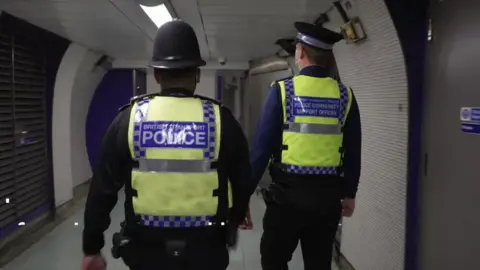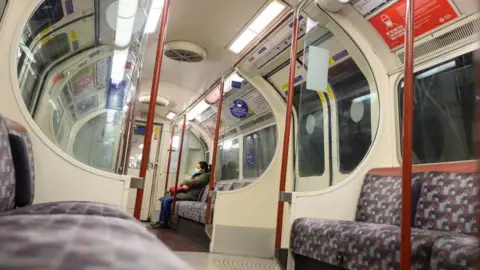Sexual harassment: Reports to transport police above pre-pandemic levels
Reports of sexual harassment on public transport have jumped 63% this summer across Great Britain compared to before the pandemic, official figures show.
British Transport Police (BTP) received 421 reports of harassment between April and October, up from 259 over the same period in 2019.
Some victims said they were more likely to report incidents due to high-profile coverage of violence against women.
BTP said it was creating a "hostile environment" for sexual harassment.
Det Ch Insp Sarah White said: "Sexual harassment is anything that makes you or anybody else feel uncomfortable with a sexual element.
"We need to work together with the community to tackle this behaviour and create this hostile environment to discourage people from behaving in this manner.
"If you look at the root cause of some the behaviours around sexual assault it all stems from sexual harassment."

One victim told the BBC she set herself a "self-imposed curfew" after she was harassed by two young men on the London underground.
Mahalia Fontaine told the BBC the men "sat next to me and they started making sexual suggestions".
"When I did stand up for myself they got more aggressive - I felt violated," she said.
"After that, I just didn't feel safe being outside."
In London, there were 313 reports between April and October compared with 194 reports over the same period in 2019 - a 61% increase.
BTP estimates that two years ago "as little as 4-7%" of incidents were reported to police.
Some women have told the BBC they are still hesitant to report crimes, due to mistrust in the police.
 Getty Images
Getty ImagesOver the past two years BTP has increased its focus on collecting sexual harassment data. Previously, the force concentrated on offences involving sexual assaults.
Ms Fontaine said she would be more likely to report now due because of the killings of Sarah Everard and Sabina Nessa.
"I feel like I can say something that can be taken seriously," she said.
